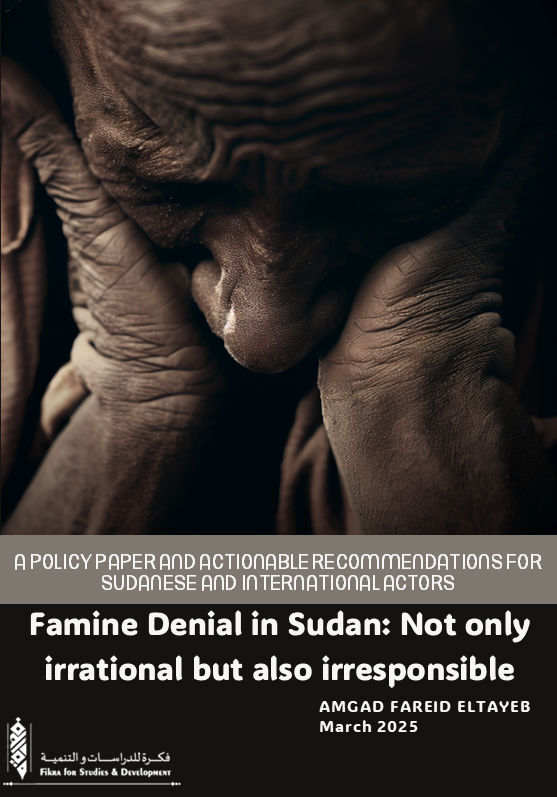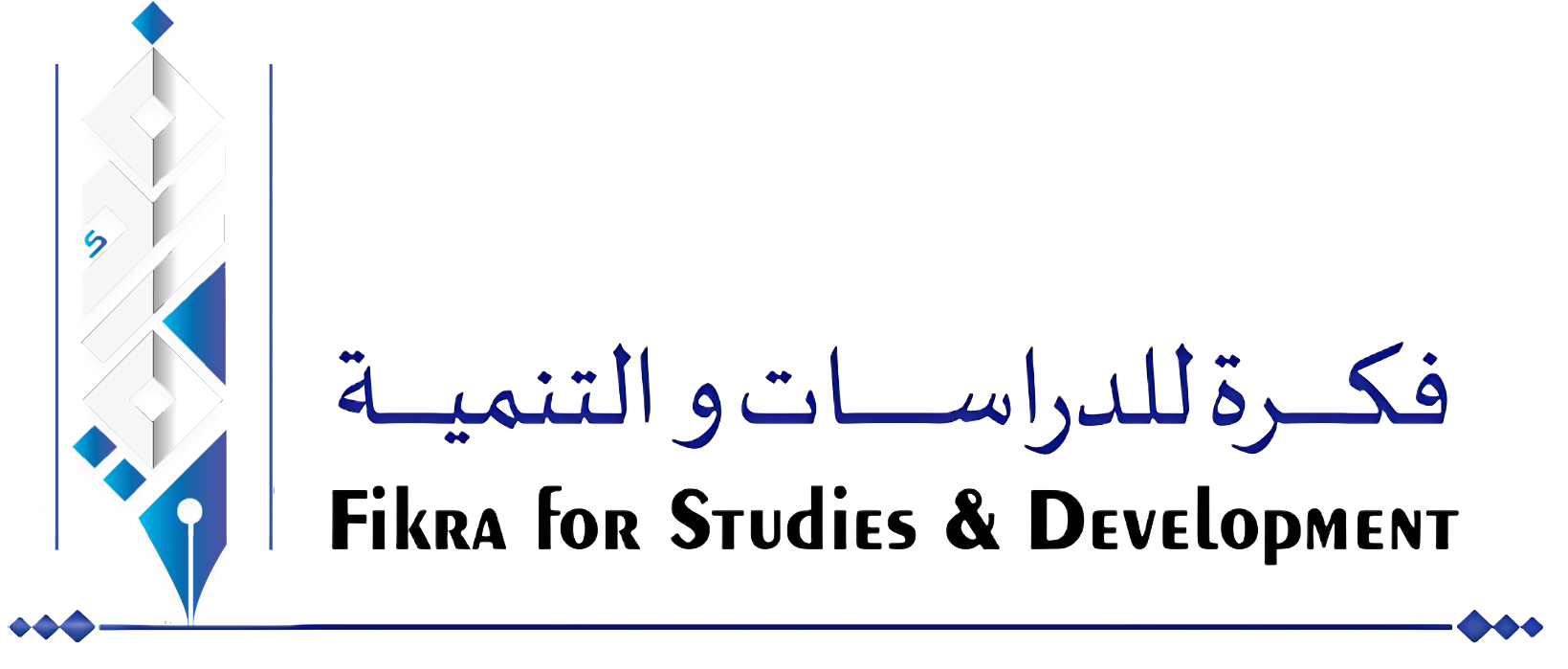Famine Denial in Sudan: Not Only Irrational but Also Irresponsible
Famine Denial in Sudan: Not Only Irrational but Also Irresponsible

Fikra for Studies and Development
Release of A New Report on Sudan’s Famine
Release of A New Report on Sudan’s Famine
23 March 2025
Famine Denial in Sudan: Not Only Irrational but Also Irresponsible
A Policy Paper and Actionable Recommendations for Sudanese and International Humanitarian Actors
A Policy Paper and Actionable Recommendations for Sudanese and International Humanitarian Actors
Sudan is in the grip of one of the worst man-made famines in modern times—engineered through violence, sustained by denial, and deepened by international complacency. With over 24 million people facing acute hunger and the worst level of famine already confirmed in parts of Darfur, this is not a slow-burning crisis. It is an urgent catastrophe, unfolding in real time.
This report exposes the central role of the Rapid Support Forces (RSF) in weaponizing hunger: destroying crops, looting aid, besieging civilians, and turning Sudan’s agricultural heartland into a battlefield. But it also confronts the Sudanese government’s dangerous withdrawal from reality—its refusal to acknowledge famine, its dismantling of early warning systems, and its bureaucratic obstruction of humanitarian access. Denial, in this context, is not just irrational. It is deadly.
International actors have fared no better. From the silence on the UAE’s complicity in arming the RSF, to the false equivalence drawn between state forces and paramilitaries, global engagement has been marked by moral confusion and political hesitation. At a time when global humanitarian funding is collapsing, Sudan cannot afford either.
This report offers more than intellectual critique. It outlines clear, actionable recommendations—for the Sudanese authorities, international partners, and aid agencies—to dismantle barriers, reestablish trust, and prioritize the delivery of life-saving assistance. It also calls for a new humanitarian framework: one that is local, functional, neutral, and accountable.
Sudan’s famine is not inevitable. It is the result of deliberate actions—and it can be reversed by different ones. This report tries to find how. The time to act is now.
This report exposes the central role of the Rapid Support Forces (RSF) in weaponizing hunger: destroying crops, looting aid, besieging civilians, and turning Sudan’s agricultural heartland into a battlefield. But it also confronts the Sudanese government’s dangerous withdrawal from reality—its refusal to acknowledge famine, its dismantling of early warning systems, and its bureaucratic obstruction of humanitarian access. Denial, in this context, is not just irrational. It is deadly.
International actors have fared no better. From the silence on the UAE’s complicity in arming the RSF, to the false equivalence drawn between state forces and paramilitaries, global engagement has been marked by moral confusion and political hesitation. At a time when global humanitarian funding is collapsing, Sudan cannot afford either.
This report offers more than intellectual critique. It outlines clear, actionable recommendations—for the Sudanese authorities, international partners, and aid agencies—to dismantle barriers, reestablish trust, and prioritize the delivery of life-saving assistance. It also calls for a new humanitarian framework: one that is local, functional, neutral, and accountable.
Sudan’s famine is not inevitable. It is the result of deliberate actions—and it can be reversed by different ones. This report tries to find how. The time to act is now.
To read the full report, press here
Fikra for Studies and Development
23 March 2025
Fikra for Studies and Development
23 March 2025

